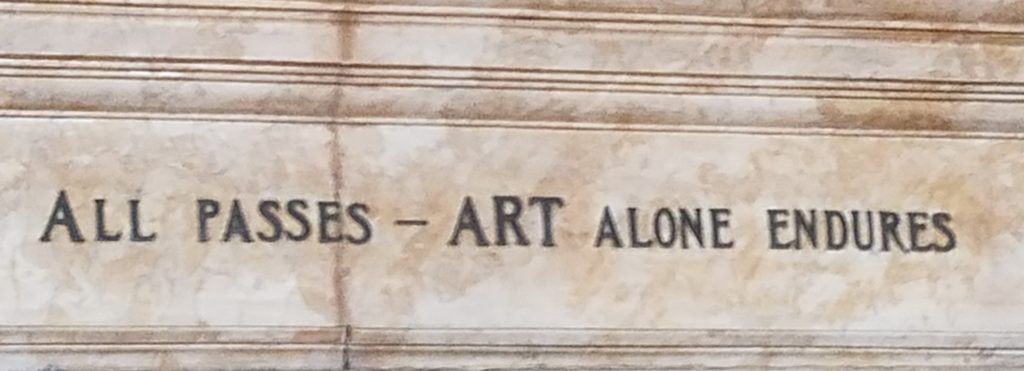“You cannot do a kindness too soon, for you never know how soon it will be too late.” Ralph Waldo Emerson
Throughout the month of October, we’re revisiting some of the staple issues of Choral Ethics. I’ve written a BUNCH about each of these subjects during the last few years. While most of us now rehearse and perform in a much different way, these issues remain at the center of Choral Ethics even now. Today we will speak of leaving a position gracefully–or not. Both stories I share today have the similar theme of someone retiring, then leaving a mess for their successor to clean up. In the midst of a Pandemic, it’s difficult to imagine someone being so petty but I assure you, these are just two stories among many I’ve heard.
Ross’s* predecessor at his position (let’s call him Jack*) retired, but when he did, he took the entire community chorus with him. In his defense, Jack had personally built up that chorus from 17 people to 125 over the course of his 25-year career, so Ross is sure Jack felt like it was his baby. But why couldn’t Jack make it his legacy? When he convinced the entire organization to relocate to the umbrella of another institution, he decimated the choral program at the school he was leaving. Actually, decimated is too gentle a word, as it actually means to eliminate one in ten; Jack almost eradicated it. The choral program went (over the course of a summer) from 140 strong to 20. This choral program will take years to recover from that loss if it ever does.
Ross wonders: if you choose to leave a position for your own reasons, how can you not at least try, in the spirit of collegiality, to set up your successor for success? It seems suspiciously as if some conductors are not motivated by their love for the art but rather for their own fame and glory, to the extent that they would jealously guard their own territory as if another’s success would threaten their own.
Dougie* started his first college teaching job in as strange a way as I have ever heard. He interviewed one spring with a nice, four-year liberal arts college in the Midwest with a strong choral program. He was charmed by the music faculty, including Monty*, the gentleman he would be replacing due to early retirement. The college owned a wonderful, large choral library and Monty was quite proud of it.
Dougie was hired for the position and excited to get this “dream job.” He, his wife and young child moved into a quaint house in late July, getting settled so he could begin to work on repertoire from that lovely choral library the first week of August. This was in the days before music libraries were put on spread sheets, so everything was organized in a card catalogue. Dougie decided to go in the last day of July, pick up the card catalogue and start browsing.
When he opened the door to the choir room, he had a sick feeling. He found the card catalogue, opened the box and found…….nothing. Well, nothing but a note from Monty. Monty’s note described how he was being forced into early retirement and would be punishing Dougie for it. How? By taking that lovely music library and hiding envelopes of music ALL OVER CAMPUS! Dougie contacted the department chair immediately. Together they found a few envelopes of the thousand pieces of music the college owned. Dougie wanted the college to press charges against Monty, but since he had hidden the music and didn’t steal it, they couldn’t. Eventually they had the music work/study students help look, but it took until the end of the fall semester to find most of the music. Even a few years later, they occasionally found an envelope. At first, Dougie thought it a sad way to end Monty’s tenure. Then he was too busy to care. What a legacy!
Until next week, be well and be safe!
*Name Withheld
I am taking my Choral Ethics Blogs to my chamber choir’s Facebook page for the foreseeable future. Please join me there this morning!
https://www.facebook.com/themidwestmotetsociety



Leave a Reply
You must be logged in to post a comment.